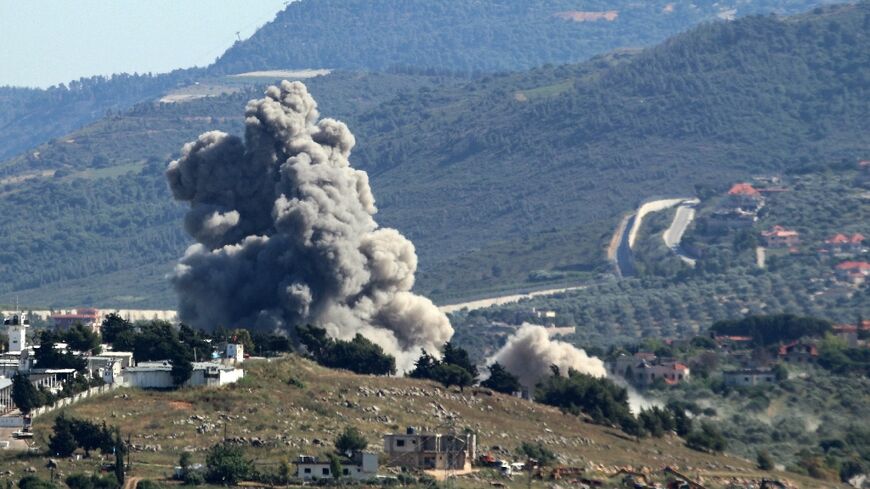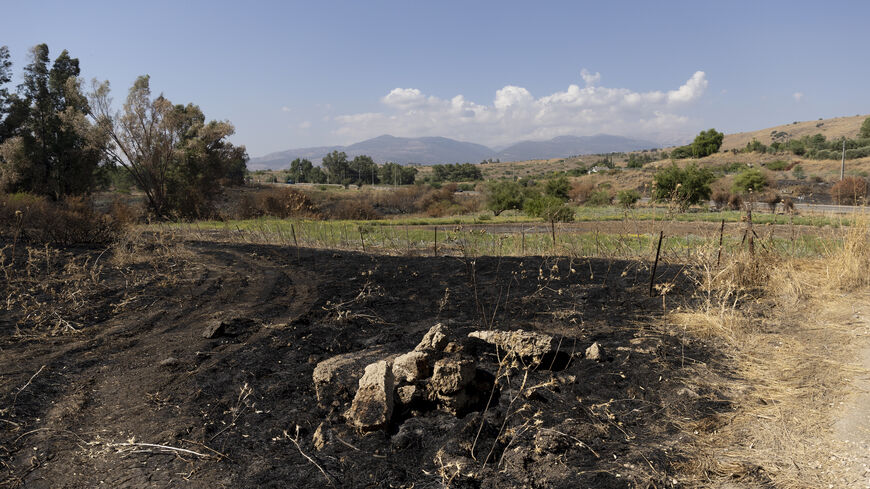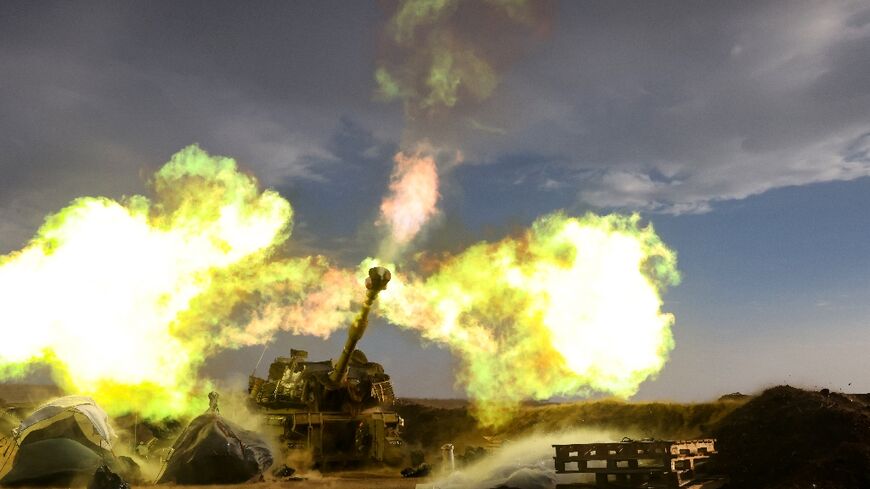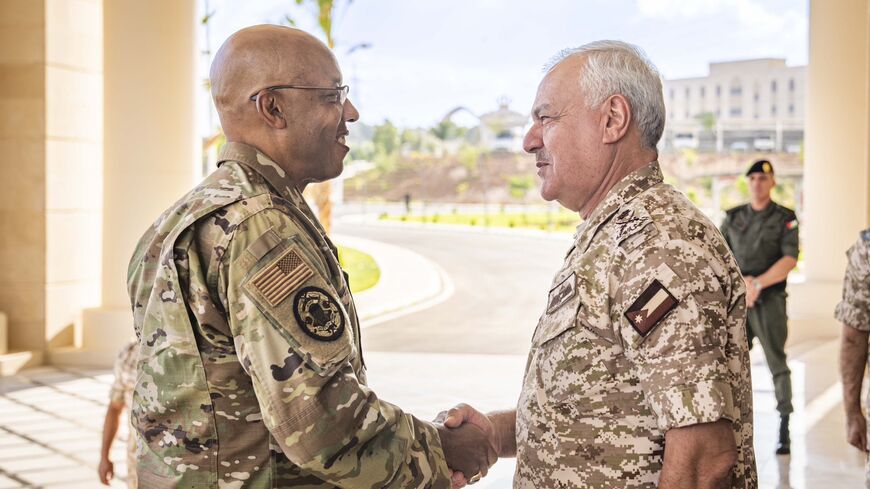Israel fires at Lebanese army in south, strikes southern Syria
An escalation in northern Israel and southern Lebanon has raised fears of an all-out war amid warnings that such a conflict could expand to the rest of the region.

BEIRUT — A Lebanese Armed Forces vehicle in southern Lebanon came under machine-gun fire from inside Israel on Friday, a rare incident involving the Lebanese army since cross-border hostilities between Israel and Hezbollah began last October.
The military vehicle was struck by four bullets near Ghajar, a disputed village on the border of Lebanon and the Israeli-occupied Golan Heights, NNA, Lebanon’s state news agency reported. It added that the soldiers in the vehicle were unharmed.
The Lebanese army has yet to comment on the report.
Israel and Lebanon remain technically at war, but the two countries’ armies have not engaged in a direct confrontation since the Israeli withdrawal from southern Lebanon in May 2000.
The Iran-backed Hezbollah movement, which has gained considerable influence in Lebanon over the past two decades, last fought a full-blown war with Israel in 2006.
More recently, Hezbollah's heavily armed militia began launching rockets at northern Israel on Oct. 8, one day after Hamas invaded southern Israel and sparked the ongoing war in Gaza.
The Lebanese army has not interfered in the current conflict, despite Israeli attacks on its positions in the south. In December, one Lebanese soldier was killed and three others wounded in an Israeli artillery strike at a military position near the border. At the time, the Israeli army described the incident as an accident and said it had opened an investigation into it.
In March, a Lebanese army vehicle patrolling the border area with peacekeepers from UNIFIL, UN Interim Forces in Lebanon, came under fire from the Israeli side. No casualties were reported.
Israel is estimated to have killed more than 330 Hezbollah fighters and commanders since October, according to a Reuters tally, along with some 90 civilians. In turn, Hezbollah strikes have left 21 Israeli soldiers and 10 civilians dead, according to Israeli figures.
Escalation threatens to spark war
Israeli-Hezbollah fighting, previously limited to tit-for-tat exchanges along the border, has expanded in recent weeks alongside an escalation in the rhetoric from both sides, raising fears of a full-scale war.
The Israeli military announced Friday that one of its soldiers had died a day earlier in a Hezbollah drone attack in Kabri, near the border with Lebanon.
Hezbollah claimed responsibility for an array of drones fired Thursday at an Israeli artillery battalion in Kabri, in response to the repeated Israeli attacks on Lebanese towns and villages.
The Lebanese group on Friday claimed another attack, with guided missiles, against surveillance equipment in the Israeli border town of Metula. Israeli media reported power outages in the town following the attack.
Meanwhile, for the first time since the start of the hostilities, Israeli warplanes on Friday broke the sound barrier in northern Lebanon, flying over Kisrawan, Jbeil, Tripoli, al-Koura and al-Matn.
The escalation in Lebanon comes as Israel steps up attacks in neighboring Syria. The Israeli military said Friday that it had struck a military position near the town of Tasil, in the south, in response to a projectile fired from Syrian territory toward the Golan Heights overnight.
Israeli media reported late on Thursday that a rocket launched from Syria had exploded in the Dalit Junction area of the Golan, causing a fire. No group has claimed responsibility for the attack.
Syria has not commented on the incident.
In a show of support for Hamas, Iran’s proxies in the region — Hezbollah in Lebanon, the Houthis in Yemen and armed groups in Iraq and Syria — have launched repeated attacks against Israel since the war in the Gaza erupted.






